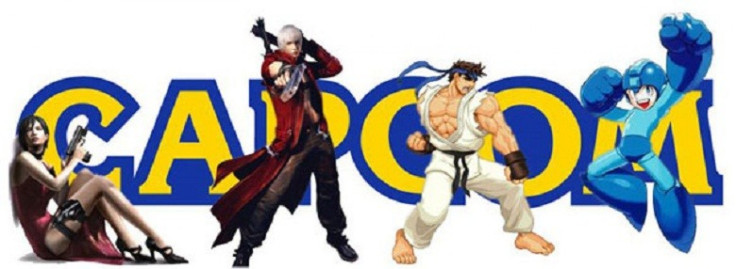Capcom Unveils New Strategy In Attempt To Raise Profits
[OPINION]

Capcom, who has been facing tumbling revenue over the past few quarters, has come up with a plan to turn things around. These plans include smaller development teams and shorter development schedules. While games like "Dragon's Dogma," "Street Fighter X Tekken" and "Resident Evil 6" (scheduled for release Oct. 2, 2012) are hits, Capcom continues to struggle both in the United States and in its native Japan.
Gamasutra reports that Capcom's plan for increasing profits will include shorter development cycles, as well as smaller teams working on games. While this isn't exactly uncommon (most high-profile studios have different teams working on different games or aspects of a game), the publisher's "efficient development structure" incorporates shorter development time. By imposing shortened development time, this forces staff to get a game finished quickly while not having what could be the necessary amount of time to finish the product.
Putting unnecessary stress on smaller teams seems counterintuitive to creating a product that works to appeal to a broad market. Capcom games have been lagging behind popular American titles like the "Call of Duty" franchise for years, mostly due to the Japanese game industry's inability to make games that truly cross over to a Western audience. In a Wired article published in April, legendary game creator Keiji Inafune ("Mega Man," "Lost Planet,") stated "man, Japan is over. We're done. Our game industry is finished."
"Teams developing major titles will be limited to 100 members, with multiple sequel titles developed at the same time. Also, as it will be necessary to create a large-scale development structure for shortening the development process, we will strengthen in-house development staff recruitment," Capcom's financial report said (via VG247). This seems like a huge gamble in that, should the game perform poorly, what would the point of a sequel or subsequence downloadable content be? If there's no revenue generated after the initial release of a game, producing downloadable content for a potential niche market doesn't seem to work.
"In addition," the report continued, "we will increase the number of titles released in a single year and expand earnings using a hybrid development model whereby the core portions of the project are developed in-house by Capcom and the process-work is outsourced to outside development companies."
Capcom's sales are down, but so are operating costs. With operating costs down almost 14%, reducing the standard "large" team number to 100 people will surely aid in bringing that number up, as well. Reducing operating costs is a solid way to save money, especially given the current economic situation. With sales down 16%, Capcom could find a way to balance that number against the operating costs. Overall net income was down around 13%, as well. With the anemic performance of games like "Asura's Wrath," the company could scuttle any plans for a potential sequel, as well as shy away from risky titles like "Asura's Wrath" in favor of more popular entries in the "Street Fighter" or "Resident Evil" franchises. The difficulty lies in whether Capcom then becomes a three or four franchise-player, solely developing those few titles over the course of a calendar year. Gutsy entries like "Asura's Wrath" and "JoJo's Bizarre Adventure" won't ever see the light of day in Japan or in the United States.
Capcom is also shifting towards a more online presence, by generating revenue through online transactions, as well as stimulating online play. The company's "Street Fighter" franchise performs well online, however; it doesn't do nearly the business as the latest "Battlefield" or "Call of Duty" entry. Both "Resident Evil: Operation Raccoon City" and "Monster Hunter Tri" were hits for the Japanese company, with "Monster Hunter Tri" being the most-played multiplayer title in Japan. "Resident Evil: Operation Raccoon City" had dismal reviews (scoring a "4" out of "10" on IGN), but remained a strong seller and maintained a solid online presence post-release.
The mobile market was strong for Capcom, as well. "Smurfs Village" and "Snoopy's Street Fair" both did solid business for the company. Beeline, the developers behind "Snoopy's Street Fair" have generated over 50 million downloads alone. Beeline was announced as the mobile arm of Capcom back in 2011 (according to MacLife). A strong mobile marketplace is key to Capcom's revenue-generation in that mobile games live and die on microtransactions. With two dominant franchises in "The Smurfs" and "Charlie Brown," Capcom almost has a license to print money should those two mobile entries continue to thrive.
Capcom also has plans to explore Hollywood as a viable revenue source, "Since our establishment in 1983, Capcom has continued to create new titles and popular series, possessing a wealth of powerful original content. Furthermore, we develop these creative worlds in a wide range of areas including film, television, publications, merchandise and gaming machines in an attempt to expand our business field and maximize profits." The latest entry in the "Resident Evil" film franchise releases on September 14, 2012 and stars Milla Jovovich as Alice, a super-soldier fighting zombies and other mutant creatures. The films and games are, at best, tenuously connected.
"Resident Evil 6," the latest game in the franchise, releases October 2, 2012, with a demo going live on September 18, 2012, according to Bloody-Disgusting.com.
© Copyright IBTimes 2025. All rights reserved.





















